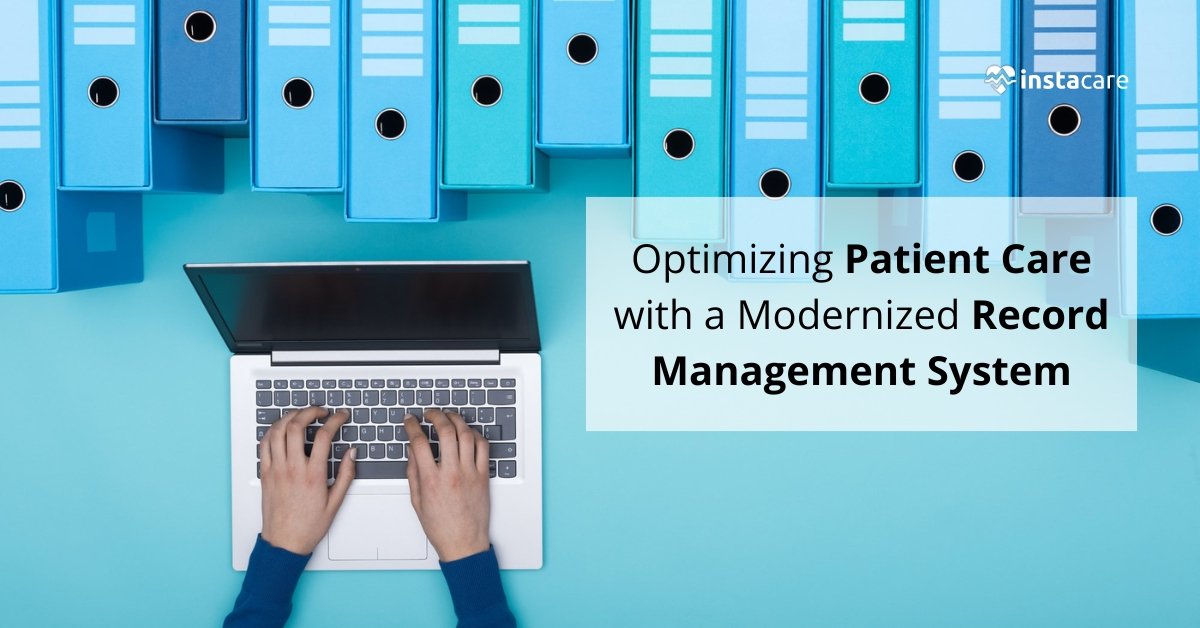Last updated on Tuesday, 8, April, 2025
Table of Contents
Optimizing Patient Care with a Modernized Record Management System
As a doctor in this day and age, you understand how vital it is to manage patient records effectively. From tracking basic information securely to generating data that can be used for analytics, record management is an essential part of providing quality care. A modernized record management system such as Electronic Health Records (EHR) offers powerful tools to help support clinical workflow while protecting patient privacy. In this blog post, we’ll explore the importance of finding an effective solution for managing all types of health records and discuss some tips that can help streamline processes when utilized properly in any men’s or women’s healthcare facility.
An Overview of Modernized Record Management Systems and Their Benefits
Managing patient records in the healthcare industry can be an overwhelming task. However, with the advent of modernized record management systems, it has become easier to keep track of medical records, test results, and treatment plans. These patient record management systems have revolutionized the way healthcare providers store and manage patient information, improving the quality of care they offer. With these systems, physicians can access medical records remotely on any device, allowing for more efficient and effective patient care.
The benefits of these record management systems extend beyond the medical field, as they can be utilized in any industry that requires the management of records. They enhance data security, reduce errors and eliminate paper-based records, ensuring that businesses remain compliant with regulations and promote sustainability. Adopting modernized record management systems is a step towards streamlining business operations and ensuring better outcomes for all involved.
Understanding How a Modernized Record Management System Works
As the healthcare industry becomes increasingly reliant on technology, it is important for healthcare providers to understand how modernized patient record management systems work. These systems help healthcare professionals keep track of patient information, including medical history, test results, and medication lists, in an electronic format that can be easily accessed and updated. Unlike traditional record management systems, which rely on paper files and can be difficult to navigate, modernized systems are designed to be user-friendly and efficient. They use a variety of tools, such as data visualization and automation, to make managing patient records more effective and streamlined. By taking the time to learn about these systems, healthcare providers can improve the quality of care they provide to their patients and enhance their overall experience.
Streamlining the Authentication Process with Automated Login Protocols
Ensuring the security of patient records is crucial for healthcare providers, and this is where automated login protocols come in handy. With the increasing use of electronic patient record management systems, there has been a growing need to streamline the authentication process for authorized users. This is achieved through automated login protocols that verify the identity of healthcare providers and grant access to record management systems. This not only saves time but also reduces the risk of errors and fraud, making it an efficient and reliable solution to manage sensitive patient data. With the help of these protocols, healthcare providers can focus on delivering quality care while maintaining the confidentiality of their patients’ information.
Improving Communication between Clinicians and Patients with Electronic Charts
Electronic patient record management systems have revolutionized the way healthcare providers communicate with their patients. The use of record management systems makes it easier for clinicians to access patients’ medical histories and provide more personalized care. These systems can improve communication with patients by enabling providers to store and share important information instantly.
Features like secure messaging and telehealth services allow patients to communicate with their healthcare providers in real-time, enhancing care coordination and patient satisfaction. Additionally, these systems can help clinicians identify trends, identify areas for improvement, and make more informed decisions. With electronic charting, patients receive better and more efficient care, allowing healthcare providers to allocate more time towards treating their patients.
Enhancing Patient Care with Automated Logging and Reporting of Lab Results
With advancements in technology, patient care has been revolutionized in healthcare. One particular aspect that has benefited is the way patient record management systems have been automated. This has greatly enhanced patient care by allowing for seamless logging and reporting of lab results. Through record management systems, healthcare providers can now track relevant data and utilize that information to make informed decisions about patient care. By using this technology, the right medication and treatments can be administered at the right time, leading to better outcomes. This innovative technology has changed the way healthcare providers deliver care and it’s clear that it has a positive impact on patient outcomes.
The Impact of Improved Record Management on Healthcare Quality, Cost, and Efficiency
The impact of improved record management on healthcare quality, cost, and efficiency cannot be overstated. Patient record management systems have revolutionized the way healthcare is delivered, enabling healthcare providers to keep accurate, up-to-date records on each patient in a secure and easily accessible manner. With record management systems, healthcare providers can quickly and easily retrieve patient information, reducing wait times for patients and streamlining workflow for healthcare professionals. Improved record management also reduces the risk of medical errors, as healthcare providers can easily identify any potential issues or inconsistencies in patient information. This ultimately leads to improved healthcare quality, reduced costs, and greater efficiency in healthcare delivery.
Conclusion
In conclusion, modernizing patient record management through the use of advanced technology can increase quality of care and reduce inefficiency. By streamlining the data management processes, medical professionals can spend less time managing records and more time on providing the best possible care for their patients. This will lead to reduced wait times; timely access to treatment plans, prescriptions and health history; improved accuracy of diagnoses; custom treatment plans tailored to each patient’s individual needs.
And better overall patient outcomes. Although adopting new systems can be expensive upfront, the long-term cost savings associated with improved patient care far outweigh the costs associated with outdated record keeping systems. Ultimately, investing in a modernized record management system is an investment that pays off both financially and from a healthcare perspective.



